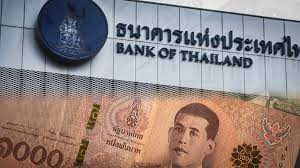An executive told reporters that as part of a strategic reorganization to address its low returns amid growing demand from an aging population, Thailand’s failing $77 billion social security fund will invest $11.6 billion in a new venture into global private assets.
Thailand’s largest state fund, which provides healthcare, unemployment benefits, and pensions to 25 million workers, has seen an average return of less than 3% over the last ten years—far below its potential.
Investment board member Petch Vergara stated in an interview that the fund plans to diversify away from its domestic-focused strategy starting next year to address this.
The fund’s significant concentration of domestic and low-risk investments, according to Petch, a former executive director at Goldman Sachs who handled private money for extremely wealthy people for over ten years, was unsustainable.
“The fund might go bankrupt by 2051 at this rate,” stated Petch, who became a member of the Social Security Fund earlier this year.
“The current investment portfolio of the fund is overly concentrated in Thai assets,” she stated.
She added that “the low-risk investments may look safe in the short term but it damages potential long-term returns.”
As the population of Thailand ages, the Department of Older Persons at the Ministry of Social Development and Human Security reports that at the end of last year, one-fifth of the country’s 66 million residents were over 60, down from 10% two decades earlier.
Laptops 1000According to the data, the population over 60 increased from 6.2 million in 2004 to 13 million in December 2023.
NEW TEAMS, REFORMIST SUPPORT
The fund’s board composition changed recently as a result of some members being elected to their positions for the first time in December, which led to the adoption of a more aggressive approach.
Before that, the generals who took over in a coup in 2014 appointed a majority of the members.
Of the 21 board members, two-thirds were chosen by election last year.
Labor organizations and the progressive party, which won the general election last year on the platform of significant institutional reforms, nominated a number of people.
However, conservative MPs allied with the royalist military prevented the party from forming a government.
The fund’s allocation of low-risk assets will drop from 70% to 60% beginning in 2025, and over the next two and a half years, the concentration of higher-risk investments would climb from 30% to 40%, according to Petch, who said the new board has approved the investment strategy.

















